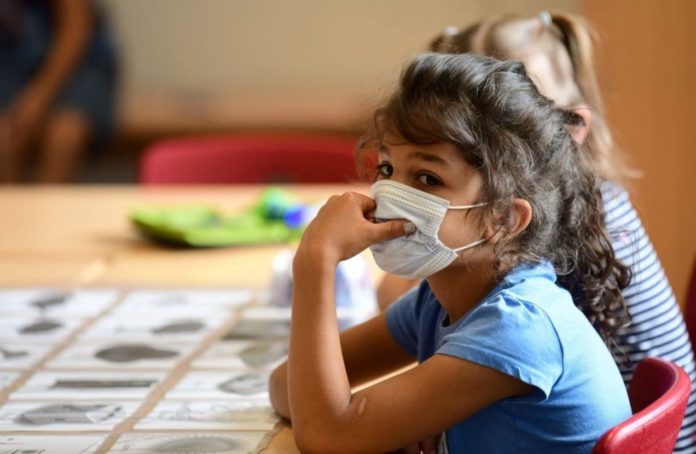A large-scale meta-analysis found that the maximum age of onset of this type of disorder was 14.5 years worldwide.
Specialists highlighted the importance of early prevention before or at the beginning of the same to improve the results.
If there is a group that during the pandemic captured the concern of specialists about the consequences this global situation will have on their mental health, it is adolescents.
- Does This Mean We Stopped Being Animal and Started Being Human Due to ‘Copy Paste’ Errors?
- The One Lifestyle Choice That Could Reduce Your Heart Disease Risk By More Than 22%
- Aging: This Is What Happens Inside Your Body Right After Exercise
- Immune-Boosting Drink that Mimics Fasting to Reduce Fat – Scientists ‘Were Surprised’ By New Findings
- Gun Violence in America: What They Don’t Talk About at the Debate
Although those in this age group are “safe” from the most serious direct effects of COVID-19, in an open letter recently published in The BMJ a group of experts including the World Health Organization (WHO), the United Nations, youth-led organizations and government representatives from countries in Africa, the Americas, Asia and Europe, expressed concern about the future of adolescents in the post-pandemic.
They warned that 1.2million people aged 10 to 19 worldwide “are at risk of inheriting a world ruined by climate change and scarred by COVID-19.” And they argue that the indirect consequences on their well-being are “devastating.”
Now, a meta-analysis of 192 studies worldwide published in the journal Nature states that “the proportion of people with the onset of a mental disorder before the age of 14, 18, 25 was 34.6%, 48.4%, 62.5%, respectively, and the maximum age was 14.5 years.”
For experts, “promoting good mental health, prevention and early intervention before or at the onset of mental disorders improve outcomes.”
“To provide robust global epidemiological estimates of age at the onset of mental disorders, we conducted a systematic review compatible with PRISMA/MOOSE with a meta-analysis of cohort, cross-sectional, birth cohort studies, representative of the general population, which reported the age of onset for any mental disorder,” summarizes the article on the methodology used.
Thus, they found that “for the diagnostic blocks, the proportion of people with onset of the disorder before the age of 14, 18, 25 and the maximum age was as follows: neurodevelopmental disorders (61.5%, 83.2%, 95.8%, 5.5 years), anxiety or fear-related disorders (38.1%, 51.8%, 73.3%, 5.5 years), obsessive-compulsive or related disorders (24.6%, 45.1% , 64.0%, 14.5 years), eating disorders or eating problems (15.8%, 48.1%, 82.4%, 15.5 years), specific conditions associated with stress disorders (16.9%, 27.6%, 43.1%, 15.5 years), substance use or behavioural disorders addictive (2.9%, 15.2%, 48.8%, 19.5 years), schizophrenia spectrum disorders or primary psychotic states (3%, 12.3%, 47.8%, 20.5 years), personality disorders or related traits (1.9%, 9.6%, 47.7%, 20.5 years) and mood disorders (2.5%, 11.5%, 34.5%, 20.5 years).
And after noting that “there were no significant differences by sex or definition of age of onset”, the specialists highlighted that “these results inform the moment of a good promotion, prevention and early intervention of mental health”.
In that sense, in the letter published in The BMJ, the leaders pointed out that even before the COVID-19 pandemic, adolescents and young adults faced “many challenges to their well-being, including social injustice and inequalities, inadequate mental health and a crisis of connection with family, community and society, with an increasing number of people living on the streets or dropping out of school”.
Even among adolescents and young adults who are employed, an increasing proportion has poor job security, variable weekly incomes, and minimal or no health or social security coverage, they added, while noting that “adolescent health development assistance accounted for only 1.6% of total health development assistance between 2003 and 2015, despite the fact that one-third of the estimated total global burden of disease is rooted in adolescence.”
Schools in 188 countries were suspended last year, according to UNESCO. More than 90% of enrolled students (1.5 billion young people) worldwide did not receive their full education plan. UNESCO Director-General Audrey Azoulay warned that “the global scale and speed of the current disruption to education are unparalleled.”
For children and adolescents with mental health needs, these closures mean a lack of access to the resources they often have through schools.
In a survey conducted by the mental health charity YoungMinds, which included 2111 participants up to the age of 25 with a history of mental illness in the UK, 83% said the pandemic had worsened their conditions. 26% said they could not access mental health support; peer support groups and face-to-face services have been cancelled, and online or phone support can be a challenge for some young people.
According to the meta-analysis published in Nature, “people with mental disorders have a reduced life expectancy of 10 to 15 years compared to the general population”, so “early interventions at the first onset of mental disorders can improve various results”.
“The primary prevention indicated in those with high clinical risk has the potential to alter the course of the disorder and improve outcomes,” they concluded.
- Does This Mean We Stopped Being Animal and Started Being Human Due to ‘Copy Paste’ Errors?
- The One Lifestyle Choice That Could Reduce Your Heart Disease Risk By More Than 22%
- Aging: This Is What Happens Inside Your Body Right After Exercise
- Immune-Boosting Drink that Mimics Fasting to Reduce Fat – Scientists ‘Were Surprised’ By New Findings
- Gun Violence in America: What They Don’t Talk About at the Debate
Preventive approaches include screening programs in asymptomatic people who have significant risk factors for certain psychiatric disorders or public health campaigns in the general population. Another complementary approach is to promote good mental health, rather than preventing mental disorders.”
Photo by INA FASSBENDER/AFP via Getty Images
